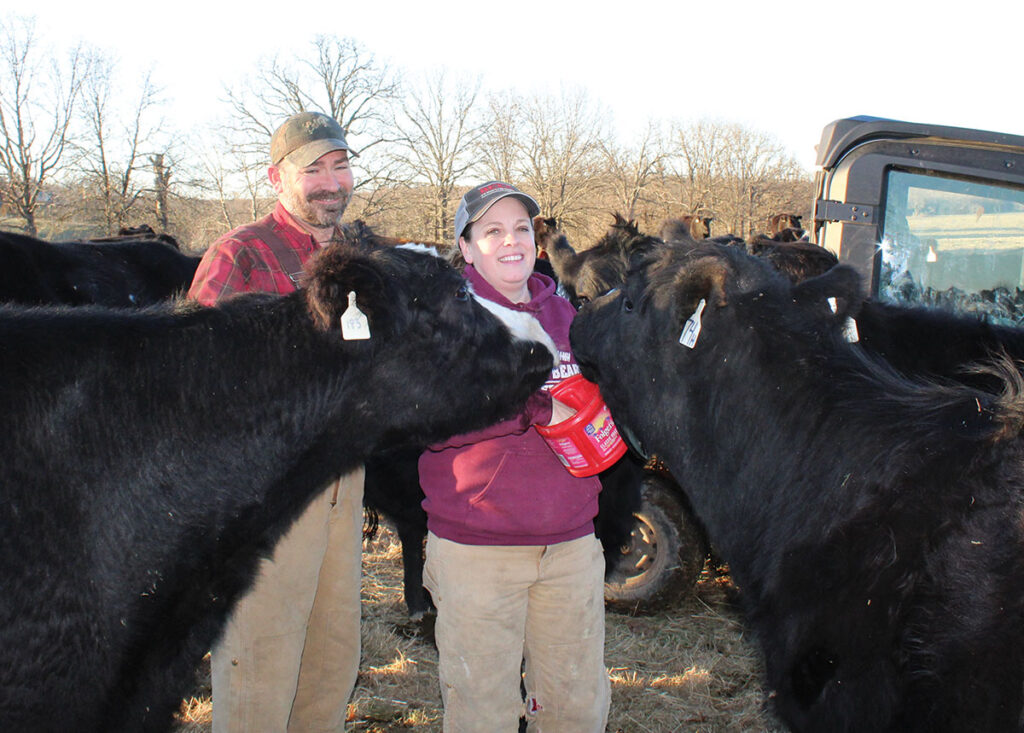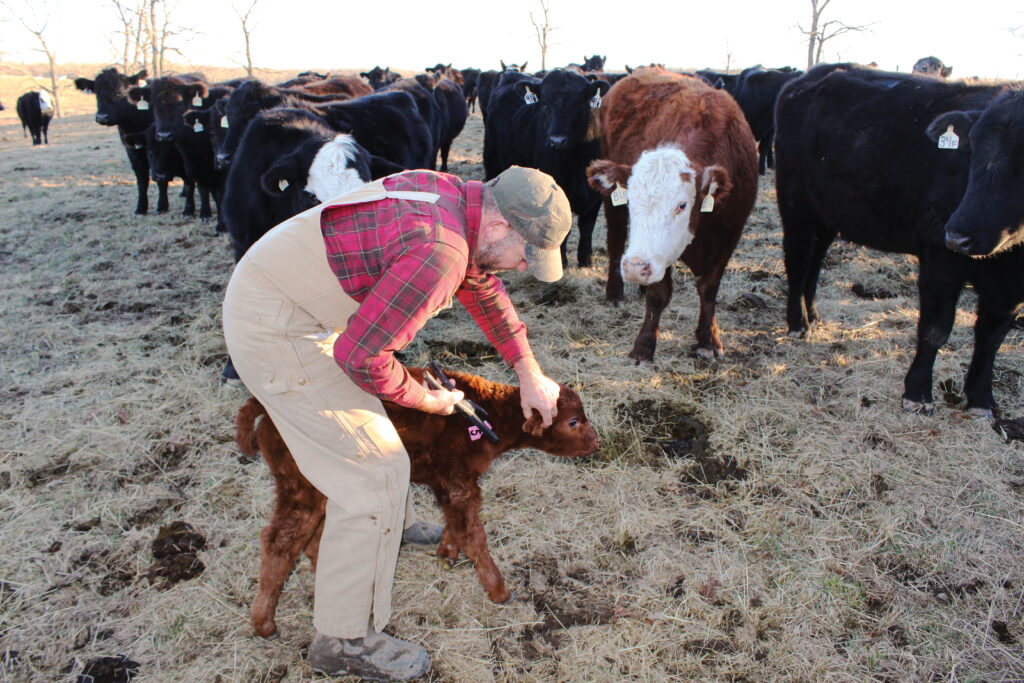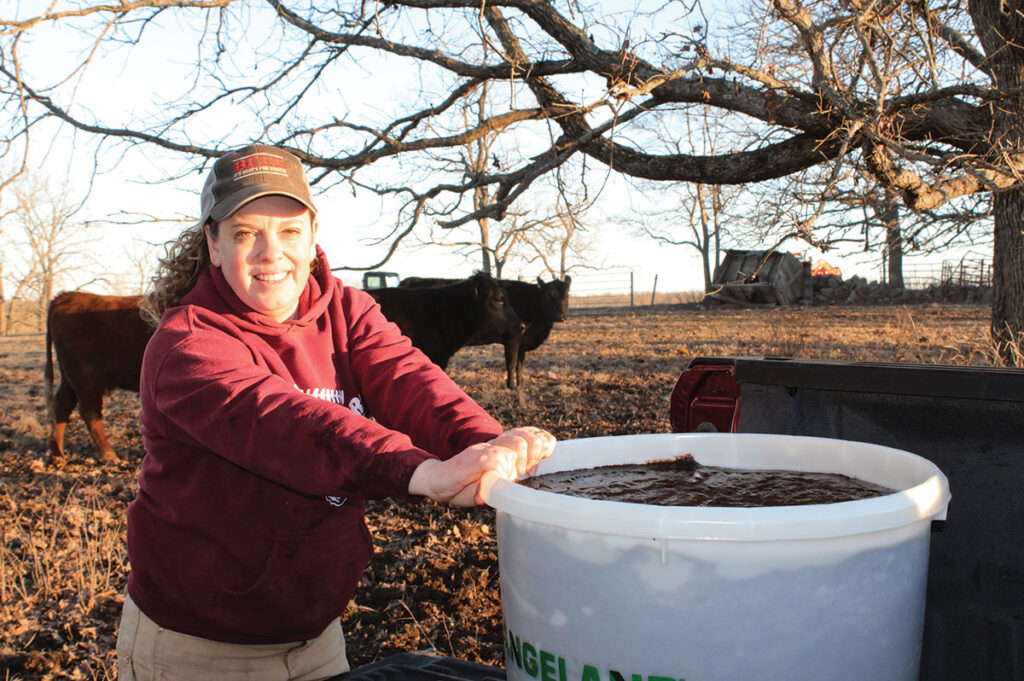
Jason and Jenny Poor have grown their farm and cattle operation
WILLOW SPRINGS, MO. – “When you’re raising your own replacement heifers you have to find a good balance of cattle that will grow while maintaining good carcass traits, milking ability and low birthweights,” explained Jason Poor of Poor Farms in central Howell County, Mo.
“We look at EPDs on the bulls we use, watching the milk and birthweight EPDs,” he said. “Our goal is to raise balanced cattle for replacement, butcher beef and carcass merit. These are all the things that help us as beef producers make money.”
The Beginning
Jason and Jenny Poor live on the farm where Jason was raised.
“Dad sold all his cattle in 2005 and I was still career building,” Jason recalled. He works for Pace Construction as the manager of the asphalt division. After graduating with a degree in civil engineering from the University of Missouri Rolla in 1997, Jason returned home and started working for Pace.
Jason and Jenny have been married for 18 years and have two children, Cooper (14) and Maddie (17).
“We talked about starting a herd when I turned 40,” Jason explained. “What I didn’t realized was how fast that would come around.”
That was in 2013 when cattle prices were at an all-time high.
“I held Jenny off for a year and in 2014 we bought 20 bred cows from an individual and 20 bred cows at the sale barn,” Jason stated. “That started our herd and we’ve been learning and growing since then.”

Now and Tomorrow
“Now we have 100 momma cows and 12 first calf heifers,” Jenny said. “We raise our own replacements and just weaned 90 calves,” Jason added. “We have three bulls; one Salers, one Angus/Salers and one Angus/Salers/Simmental cross,” he said. “Our herd is Salers bases mama cows, continuing with Salers/Angus bulls.”
Poors have their cows on a spring calving cycle.
“We start calving early February and generally don’t have to worry too much about calving issues,” Jenny said. “We do bring them through the basement when they are born during the ice and snow. We give them every opportunity to get a good start when they are cold after they are first born,” Jason said “But we get them warm and back out with mama to get that colostrum in them.”
They raise their herd on just over 700 acres.
“We have 300 acres in permanent, established pasture and try to put more ground into pasture each year,” Jason said. “We planted 53 acres this past fall but because we didn’t get rain on it for a while, we still aren’t sure if it is going to take.”
They utilize wheat planted in the fall and Sudan grass in the summer along with the fescue.
“We cut hay off the farm, and stockpile fescue in the fall to hold us over the winter,” Jason said. “We don’t own hay equipment. It works best for us to have the neighbor cut the 85 acres.”
Herd health is important to continue to grow the herd. “We keep the momma and new babies on the pasture for two to three weeks and then we rotate them onto clean ground to reduce scours,” Jason said. “We run the cattle through in the spring, when the babies are about 60 days and have the vet out to do the vaccines and deworming for the cows and calves. We also castrate and implant bull calves in the spring.”
They also have the vet out in the fall to preg check cows and do an overall review of herd health check. “Herd health and nutrition are two of the most important things you can do besides genetics in keeping your cattle productive,” Jenny said. “Make sure you know what nutrients they are getting from hay and grass and when you need to supplement. Fetal programming through nutrition is real and needs to be examined and a focus in all herds,” she added.
Diversifying for profit
Like many beef producers, the Poors are always looking for ways to promote beef and increase profit.
“We sold butcher beef by the halves for a few years, and this was our starter year in selling freezer beef,” Jenny said. “We worked with Missouri Department of Agriculture to create and get approval for our label. Then last year, we sold ground beef.”
“With COVID and the rising cost of meat at the store, people are realizing they can get better quality meat straight from a producer at not much difference in cost,” explained Jason. “We plan to expand into steaks, roasts and other cuts this next year.”

Advocacy and Organizations
Raising cattle is more than just momma cows, bulls and baby.
“It’s about advocacy. Not enough people know what we do or why we do what we do. That’s why in addition to raising cattle, we are involved in our local and state Cattlemen’s and Cattlewomen’s Associations,” Jenny explained. “These organizations are our voice in legislature and help us protect our rights.”
Jenny is president-elect of the State Missouri Cattlewomen’s and treasurer of the South-Central Missouri Cattlemen’s Association. She is also involved with MO Beef Kids.
“I just attended Cowboys at the Capital with Missouri Cattlemen’s Association,” Jason added. “It was an opportunity to sit down with our state legislators and talk about the issues we are facing as livestock producers.”
The Poors believe in order to make change and progress they must be part of that progress.
Advice and Goals
“Do your research,” Jason said. “Know what you have or are looking to purchase/get into. Focus on good genetics and whole herd health. There are lots of things to learn, but the most important is to never stop learning.
“There are so many good sources of information out there, from the farming magazines to local cattlemen’s meetings. You can never gain too much information as things are always changing,” Jason added.
“We plan to continue to put ground into production to maximize this farm,” he said. “This is our family farm and I’m happy to be working with my dad and son on the farm that I grew up on. Jason’s dad Lloyd is 84 years old and first bought 40 acres back in the 70s. He added to it as he could, and it grew to what they have today.
“Dad still helps on the farm, checking cows for us and he just told us about a new calf today,” Jason added.
“My dad said the goal is to always make sure you have more land than cattle, and that’s our plan.”







